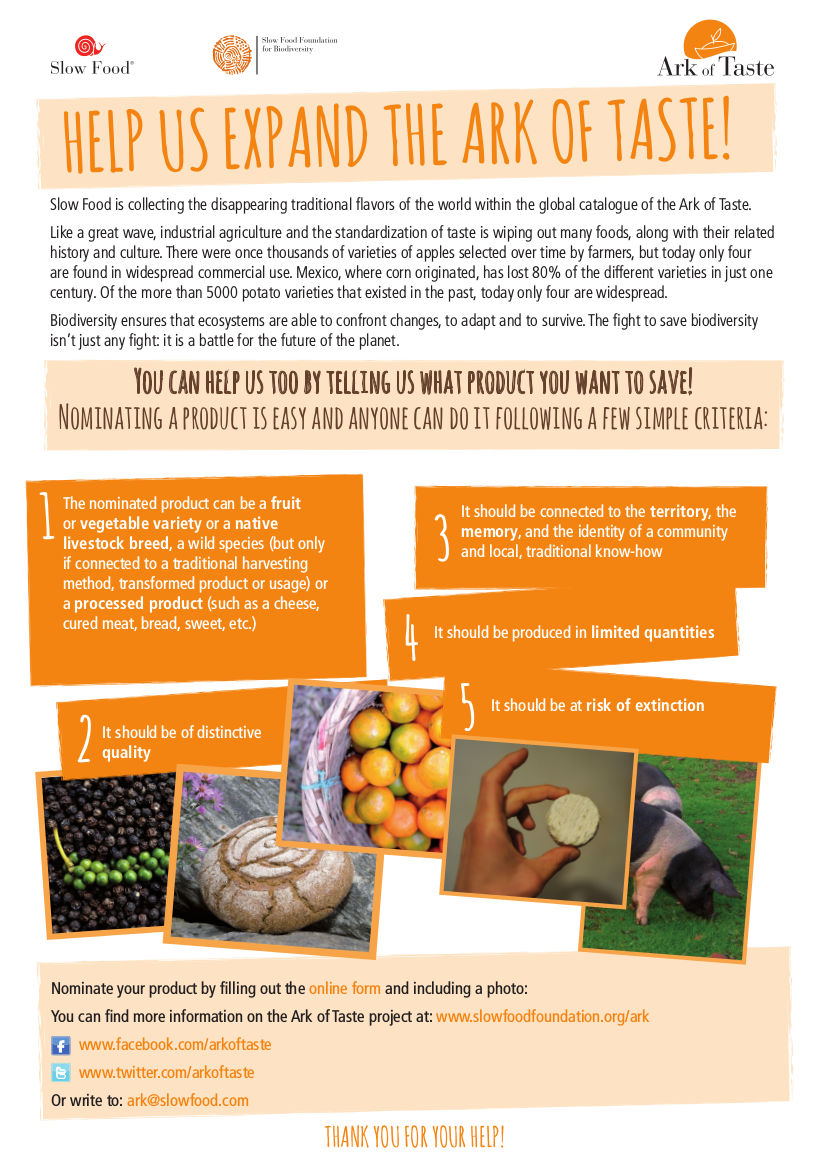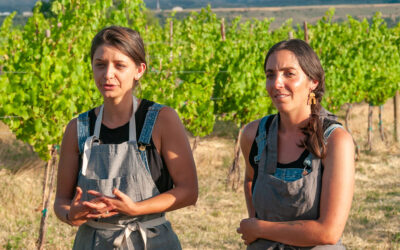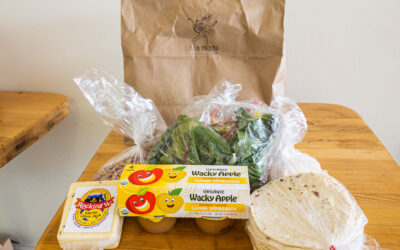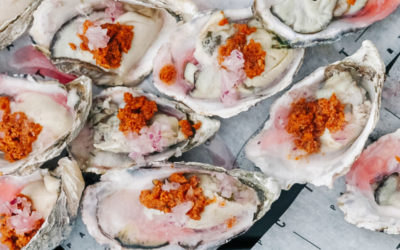From Slow Food Foundation:
Italy now has a law protecting and valorizing agrarian and food biodiversity
The bill introduced by the PD (Democratic Party) MP Susanna Cenni will officially enter into force today after being passed unanimously by the Chamber of Deputies in December 2014 and by the Senate in October 2015. Slow Food, engaged on the ground with its Presidia, Ark of Taste and Earth Markets and involved in the drafting of the bill right from the earliest debates and meetings, hopes that the new law will be a first step towards an increasingly concrete and urgent commitment and that it will serve as a model for other European countries too.
“Let’s face it,” says Piero Sardo, President of the Slow Food Foundation for Biodiversity, “we’ve long relished the idea that great steps forward had been made for the protection of biodiversity. But the five-yearly Report published a few weeks ago by the European Commission warned us not only that the 2020 target of stabilizing biodiversity in Europe won’t be reached, but also that the situation has actually deteriorated. Which is why this law gives us one reason to hope that we can buck the trend and carry on the good work even better.”
The laws’ ultimate goal is to protect local genetic resources from the risk of extinction or genetic erosion and it will be achieved partly by safeguarding rural areas, thereby avoiding their depopulation. So what concrete actions are envisaged? A nationwide system will be set up with a national register (compiled by taking a census of all local genetic resources at risk of extinction whose data are scattered across data banks managed by different institutions or research centers not at present interconnected), a network, a portal (namely a system of interconnected data banks to monitor and inform) and a standing committee (made up of representatives of the Ministry, associations and guardian livestock breeders appointed by the Regional Authorities).
This major project aside, the law is inspired by the principles of Terra Madre and sanctions and assigns value to important concepts—on which Slow Food has based its three decades of activity—such as local resources (plants and animals from a specific area or introduced to the area in which they live a long time ago), guardian farmers and livestock breeders (committed to conserving endangered local resources) and food communities (groups of local farmers involved in a project designed to defend and protect biodiversity, ethical purchasing groups, schools, research centers, associations and so on).
The course the law has followed is also significant. It was spawned at grassroots level through the concerted action of local areas, regional authorities, associations and farmers and is now returning to local areas, more specifically to regional authorities, whose job it is to implement and conform to national stimuli.
“Biodiversity is now law,” declares the Honorable Susanna Cenni. “It’s a collective result, a tribute to the determination of people who believe that the future of the world and food is in the hands of those who defend seeds, plant varieties, local areas, the environment and farmers. These objectives have yet to be fully achieved and the erosion of biodiversity hasn’t been inverted, so it’s necessary for the important words pronounced by so many at the Expo to be translated now into the daily, concrete commitment of all. Today the Italian Parliament is making a step in this direction, partly thanks to the competence and precious contribution of the Slow Food volunteers who have followed this legislation through.”
Last but not least, the law attaches a great deal of attention to seeds (which, if listed in the national register of varieties for conservation, could be sold directly by guardian growers and exchanged within the network) and the education of students and consumers through the promotion of training schemes and cultural initiatives (such as campaigns, trails, school activities and innovative agrarian biodiversity projects).





